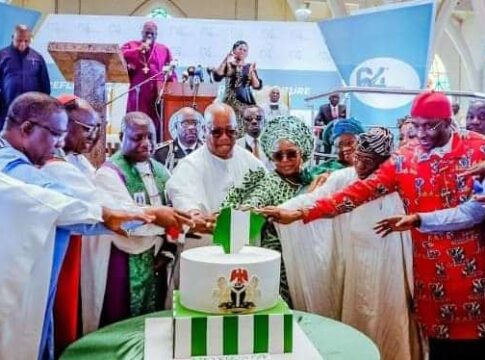Nigeria’s groundbreaking naira-for-crude oil deal is set to commence tomorrow, October 1, 2024, marking a significant shift in the country’s economic landscape. The initiative, approved by President Bola Tinubu’s administration, enables local refineries to purchase crude oil in naira, rather than US dollars.
The Dangote Petroleum Refinery will be the first beneficiary, receiving 385,000 barrels per day (kbpd) of crude oil from the Nigerian National Petroleum Company Limited (NNPC). In return, the refinery will supply equivalent volumes of refined diesel and petrol to the domestic market, also in naira.
Zacch Adedeji, Chairman of the Technical Sub-Committee and Federal Inland Revenue Service (FIRS) Chairman, confirmed the plan’s implementation. “We’ve worked tirelessly to ensure a seamless execution,” he stated. “This initiative will reduce pressure on the naira, eliminate unnecessary transaction costs, and improve petroleum product availability.”
READ MORE: Celebrating Bishop David Olaniyi Oyedepo: Why the Criticism is Misplaced
Under this arrangement, Dangote Refinery will sell diesel to interested buyers in naira, while petrol will be sold exclusively to NNPC, which will then distribute it to marketers. Regulatory costs will also be paid in naira.
Modular refineries have urged the government to extend the naira-based crude sales to their plants, citing concerns over discrimination. Eche Idoko, Publicity Secretary of the Crude Oil Refinery-owners Association of Nigeria (CORAN), emphasized the need for inclusive implementation.
“The committee should consider our refineries to avoid unfair treatment,” Idoko said. “Many modular refineries face crude supply challenges, hindering production. We seek clear communication on the naira sale’s modalities.”
As Nigerians await the initiative’s impact on petrol prices, the Dangote Group has refrained from announcing its pricing, citing the need for a formal announcement from the presidential committee.
The Federal Government has maintained a hands-off approach to the price controversy between NNPC and Dangote, emphasizing the deregulated petroleum sector.
This pioneering initiative marks a significant step toward Nigeria’s economic growth and stability. As the country navigates this new economic landscape, stakeholders remain optimistic about the potential benefits.




